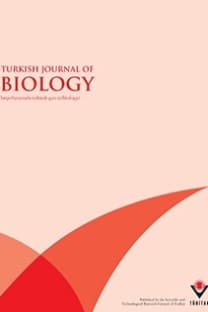The Effect of Sex on Ischemia - Reperfusion Induced Arrhythmias and the Role of Atp - Dependent Potassium Channel Blockage
The presence of more ATP-dependent potassium channels in females has been thought to play an important role in protection against myocardial ischemia. In this study, we investigated whether there is a difference in the severity of ischemia and reperfusion induced arrhythmias due to sex and, if there is, what the role of ATP-dependent potassium channel in this difference is. The left anterior descending coronary artery in rats was ligated and arrhythmias were recorded in ECG during 6 min. of ischemia and reperfusion. The duration of arrhythmias was shorter in females than in corresponding males. Glibenclamide was effective in decreasing the duration of arrhythmias in males but not in females. This may be due to the presence of more ATP-dependent potassium channels in females.
Anahtar Kelimeler:
Coronary Ligation, Ischemia-Reperfusion, Arrhythmias, Sex, Glibenclamide
The Effect of Sex on Ischemia - Reperfusion Induced Arrhythmias and the Role of Atp - Dependent Potassium Channel Blockage
The presence of more ATP-dependent potassium channels in females has been thought to play an important role in protection against myocardial ischemia. In this study, we investigated whether there is a difference in the severity of ischemia and reperfusion induced arrhythmias due to sex and, if there is, what the role of ATP-dependent potassium channel in this difference is. The left anterior descending coronary artery in rats was ligated and arrhythmias were recorded in ECG during 6 min. of ischemia and reperfusion. The duration of arrhythmias was shorter in females than in corresponding males. Glibenclamide was effective in decreasing the duration of arrhythmias in males but not in females. This may be due to the presence of more ATP-dependent potassium channels in females.
Keywords:
Coronary Ligation, Ischemia-Reperfusion, Arrhythmias, Sex, Glibenclamide,
- ISSN: 1300-0152
- Yayın Aralığı: Yılda 6 Sayı
- Yayıncı: TÜBİTAK
Sayıdaki Diğer Makaleler
Cellular Functions of the 26S Proteasome
Isolation and Characterization of Aerobic Denitrifiers from Agricultural Soil
Ersöz GONCA, Eylem Suveren TİRYAKİ, Ömer BOZDOĞAN
Production of Pullulan From Beet Molasses and Synthetic Medium by Aureobasidium pullulans
